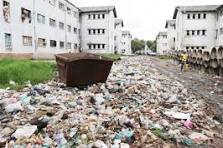Government Reviews Salaries of Public Sector Journalists Amid Media Sector Reforms
- Southerton Business Times

- Oct 28, 2025
- 2 min read

HARARE – The Government of Zimbabwe is reviewing the salaries and working conditions of journalists employed in the public sector, in a move aimed at improving media professionalism, morale, and retention, according to Information, Publicity and Broadcasting Services Minister Dr. Jenfan Muswere.
Speaking at the 2024–2025 National Journalism and Media Awards (NJAMA) held in Harare, Dr. Muswere said the review is part of broader reforms to modernize the country’s media landscape and ensure that state-employed journalists are adequately compensated for their role in informing the public. “We are committed to uplifting the welfare of public sector journalists,” said Muswere. “Their work is essential to democracy, national development, and social cohesion.”
The review will cover journalists working for state-owned media houses such as the Zimbabwe Broadcasting Corporation, The Herald, Chronicle, New Ziana, and other government communication departments. It includes salary adjustments, housing allowances, transport support, and improved access to training and digital tools.
The announcement comes amid growing concerns over poor remuneration and working conditions in the media sector. Many journalists, particularly in the public sector, earn below the poverty datum line and face challenges such as outdated equipment, limited mobility, and job insecurity. “We welcome the government’s commitment, but we need timelines and transparency,” said Takunda Chikowore, president of the Zimbabwe Union of Journalists. “Journalists are frontline workers in the information economy and deserve decent livelihoods.”
Zimbabwe’s media landscape has undergone reforms in recent years, including the licensing of new television and community radio stations, the repeal of the Access to Information and Protection of Privacy Act, and the establishment of the Zimbabwe Media Commission as an independent regulator. However, the industry continues to grapple with political interference, shrinking advertising revenues, and competition from fast-growing digital media platforms. The COVID-19 pandemic further strained newsrooms, leading to wage cuts and job losses.
Dr. Muswere said government is working with the Ministry of Finance and the Public Service Commission to finalize the salary adjustment framework. He also urged private media employers to improve conditions for their workers and uphold ethical standards. “A well-resourced journalist is a more effective journalist,” he said. “We must invest in the people who tell our national story.”
Media watchdog groups have welcomed the initiative but emphasized that journalist welfare must be accompanied by expanded protections for press freedom, including safeguards against harassment and legal reforms to decriminalize defamation. The NJAMA ceremony recognized outstanding work in investigative reporting, community journalism, and digital innovation.





Comments